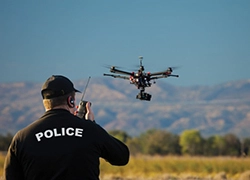Advantages of BAE RAVEN signal jammer
BAE's RAVEN GPS jammer stood out in the Army's "Soft Kill Competition". In this competition, the Army fired live anti-tank guided missiles (ATGMs) at three competitors to evaluate their anti-missile capabilities.The RAVEN system successfully deflected the missile from its target and was given the opportunity for further testing. It is planned that in the next more challenging phase, RAVEN will be used in conjunction with the Israeli-made Iron Fist hard kill system, which can physically destroy incoming missiles that soft kill systems cannot deal with.
Although the US Army has not yet officially purchased BAE RAVEN, the deployment of the system is seen as an important measure to cope with the increasingly severe security situation. Especially around the world, Russian-made anti-tank missiles are widely used by conventional armies and guerrillas, and effective protection measures must be taken.
Technical Background and Competitors
At the Redstone Army Test Center in Alabama, the RAVEN wireless drone jammer won the competition with Northrop Grumman's Multifunction Electro-Optical System (MEOS) and Lockheed Martin's Improved Color Light Deflection Operational Unit (CLOUD). As a multi-functional countermeasure system (MFCM), RAVEN not only has the ability to jam missiles, but also can be integrated with other protection systems.
The next step is to install RAVEN on the M2 Bradley Fighting Vehicle for a "layered demonstration", that is, to integrate soft-kill and hard-kill systems on the same platform, coordinated by the Modular Active Protection System (MAPS) developed by the Army. The effective integration of such systems will greatly enhance the survivability of armored vehicles in combat.
The evolution of active protection systems
In the past, the Army's focus has been mainly on hard-kill active protection systems (APS), which shoot down incoming missiles by firing small missiles or explosives. After decades of technology accumulation, the Army purchased the combat-proven hard-kill system, Rafael Trophy, in 2017 and began installing it on the M1 Abrams tank. At the same time, the IMI Iron Fist system was also selected for installation on the M2 Bradley, a medium tank-fitted troop carrier.
In contrast, soft-kill systems have received relatively little publicity, but their importance cannot be ignored. Soft-kill systems use electronic interference to blind or deceive incoming missiles so that they cannot hit their targets. The complementarity with hard-kill systems makes the combination of the two the best strategy for protecting armored vehicles. The advantage of soft-kill systems is that they do not consume ammunition, so they can be used first in higher threat environments.









